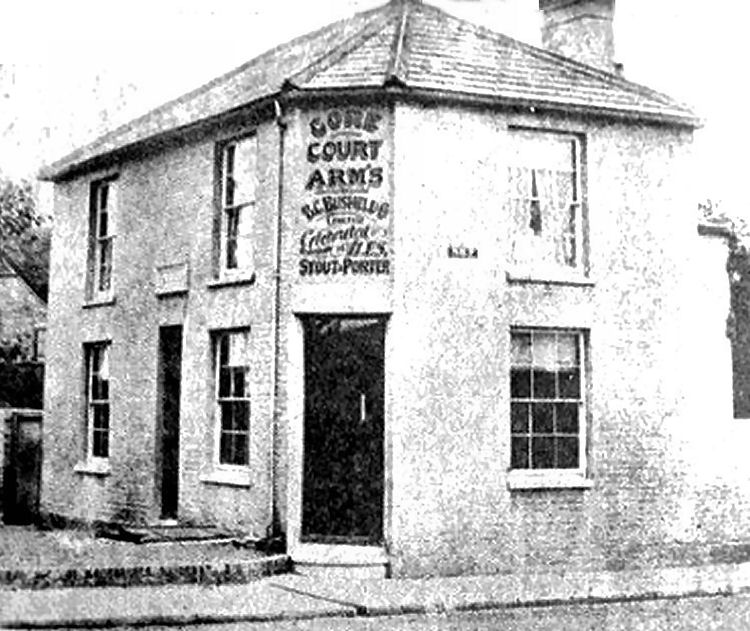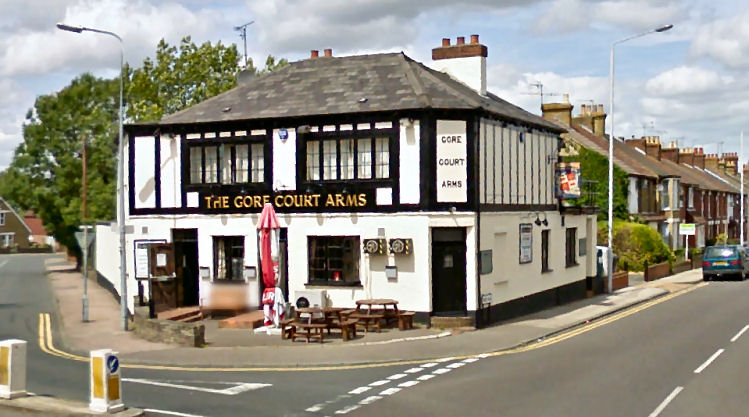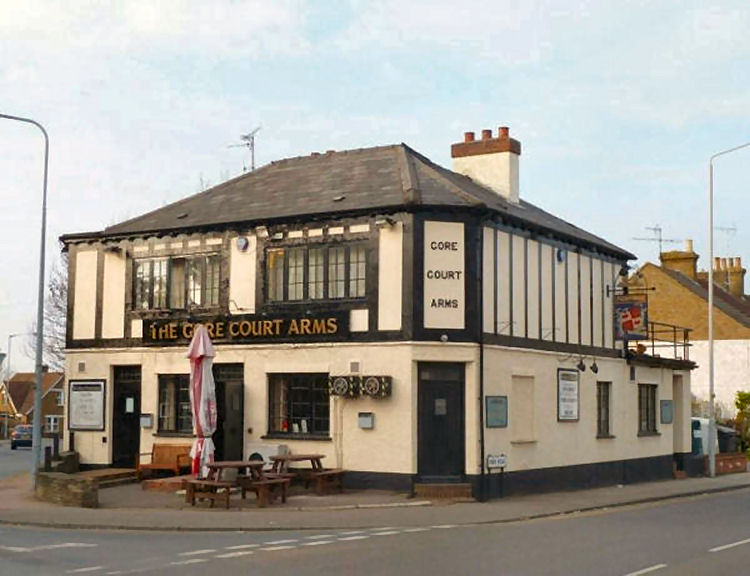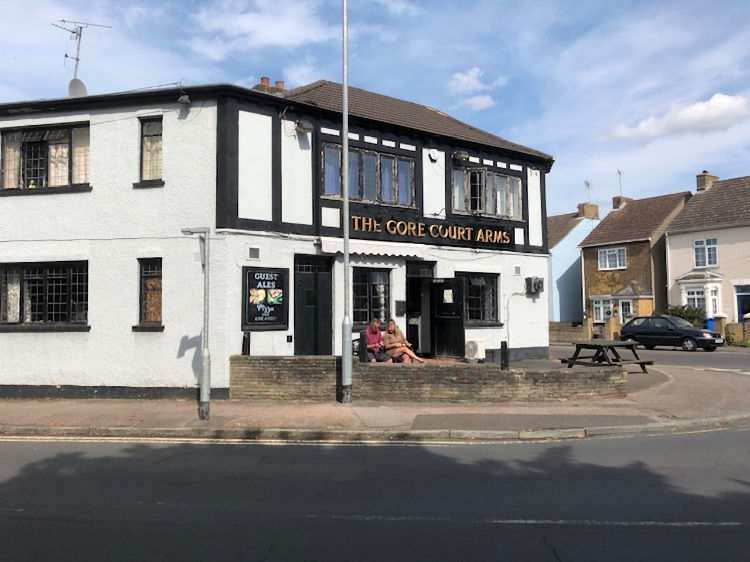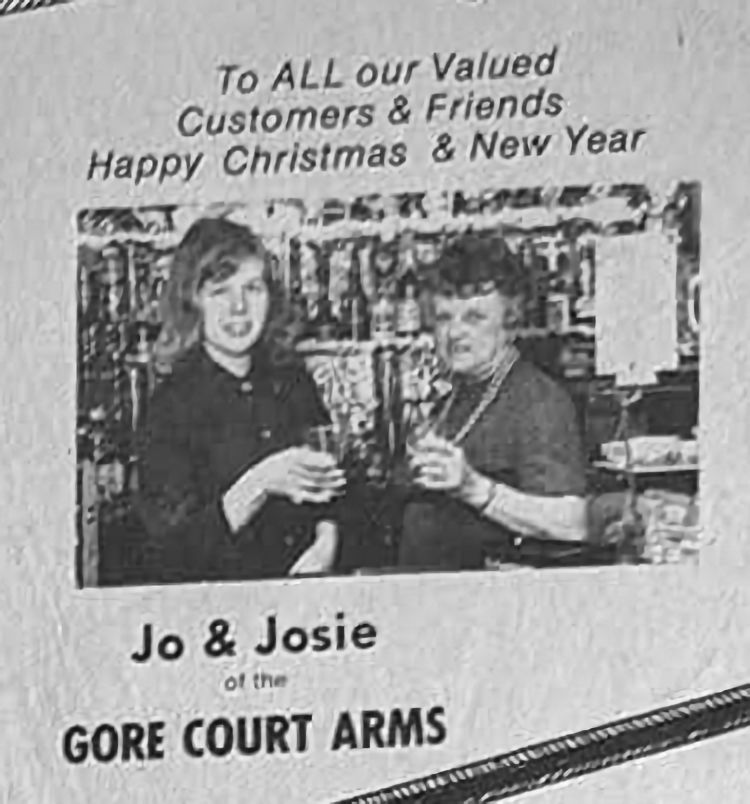|
From the Whitstable Times, 22 October, 1870.
George Ward alias Waddler was indicted for stealing ten sacks of
potatoes , value £4. the property of Robert Mercer, at Rodmersham, on
the 6th May last. In a second count the prisoner was charged with
receiving the potatoes, knowing them to have been stolen.
Mr. F. J. Smith prosecuted.
Charles Heckers, bailiff to Mr. Mercer, stated that he saw a quantity of
potatoes safe in a kiln of a hop oast, and subsequently missed all of
them except one sack and two bushels.
Robert Edward Wratten said he was a baker, of Sittingbourne, and three
or four months since he purchased about ten sacks of potatoes of a man
named Winser. On one occasion when Winser came to be paid the prisoner
was with him. Winser had been convicted of stealing potatoes from the
prosecutor in this case, and was now undergoing a term of imprisonment.
Hebert Page, a baker, deposed that he was in the employ of the last
witness in May last, and recollected Winser brining some potatoes to his
master. There was a man with Winser once, but he could not say whether
it was prisoner or not. The prisoner came up to the bake-house once.
Alfred Norwich, of the “Gore Court Arms,” near Sittingbourne, saw the
witness Page pass his house early on the 6th May with a truck. He went
up to Mr. Smeed’s shaw. There were two men walking about near the shaw,
and when Page got up to them they went in the shaw and brought out four
sacks containing something, and put them in the truck. Page then pushed
the truck away, passing his house again. The two men went in the
opposite direction Henry Oderrenshaw, a plumber, of Sittingbourne was
going to his work at Woodstock, on the morning of the 6th May, at about
six o'clock, and he met the man Winser and another man near Mr. Smeed’s
shaw.
Superintendent Mayne said he went to the prisoner's house on the 7th
May, and found some potatoes corresponding with these produced in the
house. Prisoner said he got them from a man called “Jack,” at Murston,
in exchange for some rabbit nets. He told him he must come with him to
Mr. Wratten’s and he promised to do so. He went with him, and when they
had got a little way he ran off. He was subsequently apprehended upon a
warrant.
Edward Price, of Milton, was going to his work between five and six
o’clock on the 6th May, and met the man Winser and the prisoner. They
were both carrying sacks containing something.
William Sutton spoke to seeing the witness Page go up to the back way of
Mr. Wratten's house with a truck containing four sacks, and to
afterwards seeing the prisoner and Winser go to the house. They went in
the back way.
In defence, the prisoner said he got into the man Winser's company, and
went about with him. He called a woman named Mary Thomas (with whom the
prisoner had lived for several years), who declared that a man brought
some potatoes to her house, and that these produced were not the same as
these.
The jury returned a verdict of not guilty.
The jury expressed an opinion that the conduct of the Sittingbourne
police in taking charge of property was very reprehensible. Two cases
had been before them that day in which it was shown that the police had
not taken proper charge of the property put into their hands. In this
case they referred to the potatoes found in the prisoner Ward’s house
being left at a shop all one night instead of being at the
police-station.
Superintendent Mayne said he could not take the potatoes to the police
station on the night he received them, as he was apprehending a
prisoner.
Mr. Smith observed that a satisfactory explanation had been given by
Superintendent Mayne as to the reason of his leaving the potatoes at a
greengrocer’s shop. He thought some observations were required from the
Court, as Superintendent Mayne was an officer or high ability, and such
a charge as was made against him reflected upon his character.
The Chairman pro tem., (W. H. James, Esq.,) said sometimes there was
neglect on the part of the police, but he ventured to remind the jury
that there were concomitant circumstances in some cases which rendered
it impossible for the police to carry out every part of their duty in a
satisfactory manner. The Court was unanimously of opinion that in the
case heard previous to the last one there had been gross neglect, but
the Superintendent was exonerated from any blame in either case.
|
